 Petzlover
Petzlover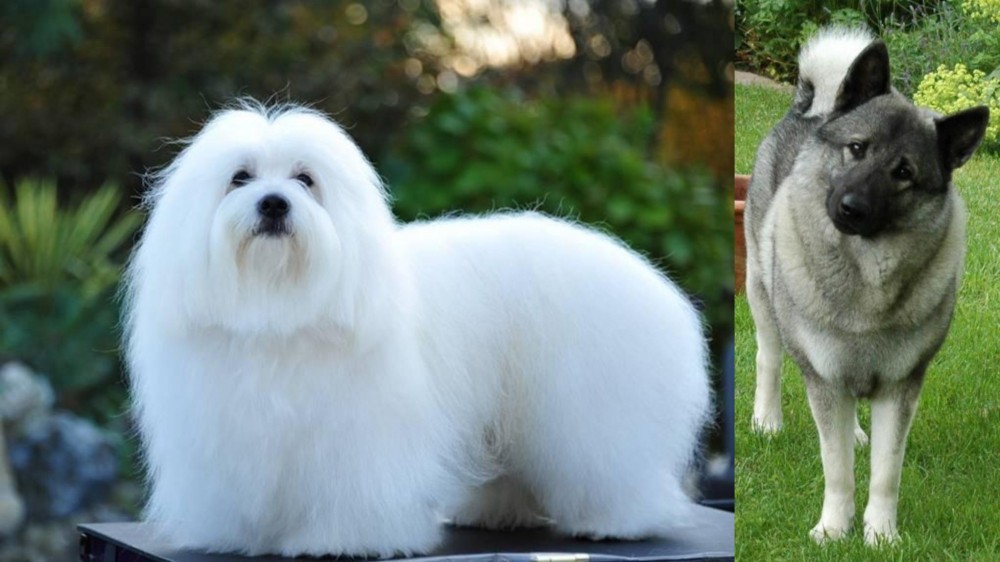 Coton De Tulear is originated from Madagascar but Norwegian Elkhound is originated from Norway. Coton De Tulear may grow 25 cm / 9 inches shorter than Norwegian Elkhound. Coton De Tulear may weigh 19 kg / 41 pounds lesser than Norwegian Elkhound. Both Coton De Tulear and Norwegian Elkhound has almost same life span. Coton De Tulear may have less litter size than Norwegian Elkhound. Coton De Tulear requires Low Maintenance. But Norwegian Elkhound requires Moderate Maintenance
Coton De Tulear is originated from Madagascar but Norwegian Elkhound is originated from Norway. Coton De Tulear may grow 25 cm / 9 inches shorter than Norwegian Elkhound. Coton De Tulear may weigh 19 kg / 41 pounds lesser than Norwegian Elkhound. Both Coton De Tulear and Norwegian Elkhound has almost same life span. Coton De Tulear may have less litter size than Norwegian Elkhound. Coton De Tulear requires Low Maintenance. But Norwegian Elkhound requires Moderate Maintenance
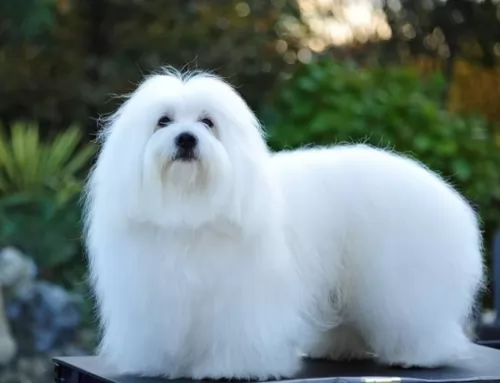 These cute little Coton de Tulear dogs originate from Madagascar and have in fact been named the ‘official dog of Madagascar’.
These cute little Coton de Tulear dogs originate from Madagascar and have in fact been named the ‘official dog of Madagascar’.
The Coton de Tulear actually takes his name from the seaport city of Tulear. In the 1970s a Frenchman brought a puppy to France, with the idea of establishing them as a breed. It was also at this time that the dogs were brought to North America.
This small fluffy white dog was also found on the island of Malta, becoming known as the Maltese. They were mated with other dogs such as the Barbet, a curly haired dog and other coat colors exist such as apricot, black and white and fawn. Other breedings led to the Barbichon family of dogs which includes the Bichon Bolognese and the Bichon Teneriffe. The modern day breeds are the Maltese and the Coton de Tulear.
As with many dog breeds, there are different tales about the origin of the dogs and one version is that the white cotton-ball type of dog survived a shipwreck off the Madagascar coast.
 The Norwegian Elkhound is an ancient spitz-type dog breed hailing from Norway and with a history that goes back thousands of years.
The Norwegian Elkhound is an ancient spitz-type dog breed hailing from Norway and with a history that goes back thousands of years.
These dogs have been used as hunting dogs and have been able to bring down game such as Elk, bears, wolves, badgers and reindeer. They have also been used to guard livestock.
The Norwegian Elkhound was recognized by the American Kennel Club in 1913.
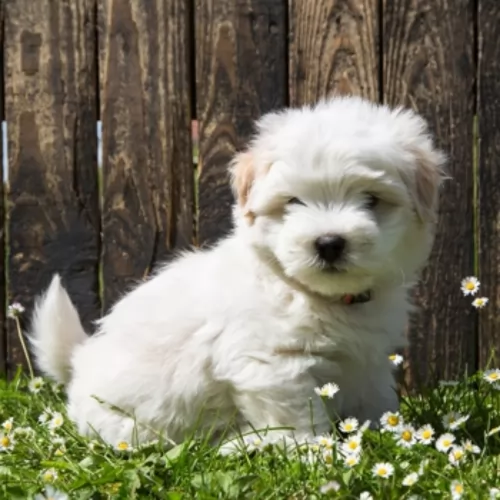 These little dogs make perfect companions. They stand about 25–30cm with the female sometimes being slightly smaller. They weigh anything between 3 – 6kg. They’re robust little canines and can live up to 19 years or so when looked after well.
These little dogs make perfect companions. They stand about 25–30cm with the female sometimes being slightly smaller. They weigh anything between 3 – 6kg. They’re robust little canines and can live up to 19 years or so when looked after well.
The Coton de Tulear is easily recognized because of his soft, fluffy coat. Many people take their dogs to the dog salon to have him washed and his hair trimmed. His legs are short and straight as well as being muscled under the hair. The ears are floppy and the tail of the Coton de Tulear is carried straight or slightly curved.
The Coton de Tulear is a friendly, affectionate dog who has a gentle, cuddly side to him. They are social dogs and get on well with their human family and with the children in the home, loving the games they provide.
He will also get on well with other pets in the home and becomes amicable, relaxed and obedient with socialization and training. Small though he is, he makes a great watchdog too and is full of tricks, making him an entertaining pet to have around.
 The Norwegian Elkhound is a medium to large sized dog standing at roughly 45 to 55cm in height and weighing anything fro 18 to 25 kilogams.
The Norwegian Elkhound is a medium to large sized dog standing at roughly 45 to 55cm in height and weighing anything fro 18 to 25 kilogams.
People love this dog because of his beautiful wolf-like face and bright eyes. The head is broad and wedge-shaped, the eyes dark brown, the ears stand erect and the bush tail curls over the dog's back.
The double coat has different shades of gray and silver with cream and white shades on the undercoat.
He is a moderate shedder with some seasonal shedding.
The Norwegian Elkhound is a high energy dog who loves to be busy and he also makes a loving and loyal companion towards his human family. He tends to be a little bit reserved around strangers.
He is an independent dog so so its a good idea to have him trained and socialized so that he is always obedient. He is an intelligent dog so you won’t battle to teach him.
He gets on well with children in the home. He however, can be a little bit aggressive with other dogs, but not if he was brought up with them as a puppy. Adventurous and active, he just loves spending time outdoors. It's why he is best suited to life in the countryside as opposed to the city and also prefers cooler climates.
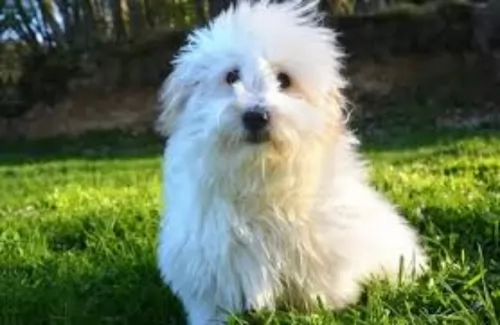 The Coton de Tulear just wants to please his human family and spend unforgettable moments with them, hating to be separated from them. He is such an adaptable little dog and will fit well into city- as well as country life.
The Coton de Tulear just wants to please his human family and spend unforgettable moments with them, hating to be separated from them. He is such an adaptable little dog and will fit well into city- as well as country life.
He is smart, comical, playful, independent and fun to have around as he is known for his clownish personality. Treat him well and he’ll repay you with plenty of love and loyalty.
 Your Norwegian Elkhound makes an awesome pet. He is full of the joys of living and wants to be an active member of his human family.
Your Norwegian Elkhound makes an awesome pet. He is full of the joys of living and wants to be an active member of his human family.
He is active and always ready for some fun and games. He is also intelligent and will make an even better pet when he has been trained and socialized.
Those who have owned one of these beautiful dogs will always say how they adore this beautiful, smart, loving canine friend of theirs.
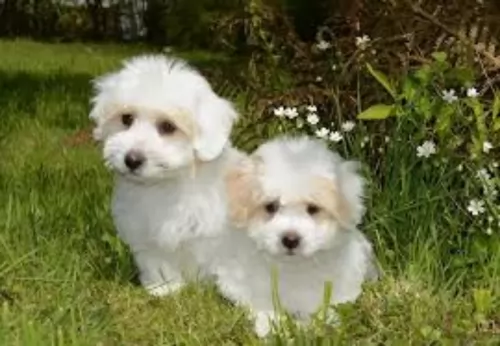 With proper care, your Coton can reach a ripe old age of 15 – 20 years of age. However, even this robust little dog will need to be watched, as he can fell prey to some common dog ailments -
With proper care, your Coton can reach a ripe old age of 15 – 20 years of age. However, even this robust little dog will need to be watched, as he can fell prey to some common dog ailments -
Bad Breath with your pet can be a sign of dental decay. Dental plaque for instance, caused by bacteria, can give your pet a terrible breath. It is important to brush your pet’s teeth 2 or 3x a week. Your vet can provide tips on how to brush your pet’s teeth with a special canine toothbrush and toothpaste.
Other things to look out for are hip dysplasia and chronic allergies. Allergies can cause itchy and dry skin as well as ear infections because of so much hair being in the ear canal. Speak to your vet about how to clean your pet's ears to avoid ear infection.
 Your beautiful Norwegian Elkhound can reach 15 years of age if you look after him well and he manages to avoid some of the common dog diseases there are.
Your beautiful Norwegian Elkhound can reach 15 years of age if you look after him well and he manages to avoid some of the common dog diseases there are.
There are some dog illnesses that are good to be aware of -
This is an eye condition where there is pressure that builds up in the eye. There is a problem with the drainage of fluid in the eye and this is what causes the pressure and there can be damage to the optic nerve.
This is a skin condition that causes inflammation and is often seen in dogs like the Norwegian Elkhound who have thick coats.
A common disease seen in many dog breeds, young and old, and which is a malfunction of the hip joints, causing problems with your dog’s mobility.
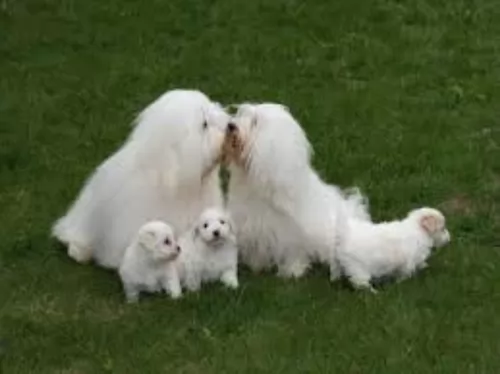 Coton de Tulears will need some exercise if you want him to remain lean and fit. It is important to provide exercise and games for your dog to prevent boredom. Activity levels for any dog, including the Coton, will depend on his age and health.
Coton de Tulears will need some exercise if you want him to remain lean and fit. It is important to provide exercise and games for your dog to prevent boredom. Activity levels for any dog, including the Coton, will depend on his age and health.
A walk every day and some ball games will keep your pet happy and prevent him from resorting to destructive behavior from sheer boredom and frustration.
The long coat will require some careful grooming and you will need to be on the lookout for excess hair around the paws and in the ears.
He is not a great shedder and brushing twice a week will remove loose hairs and provides the perfect opportunity to check for fleas and ticks.
Just like any other dog, your Coton de Tulear will need a warm, dry place to sleep. If you haven’t already invested in a doggy basket or dog bed, you can use a cardboard box for now, before making up your mind what you want for your pet.
A well behaved, obedient dog is a pleasure for everyone, and training and socialization is important, even for a small dog. Your dog will understand simple commands such as ‘sit’, ‘down’ and ‘come’ and also know how to walk well on a leash.
 As a spitz type dog, the Norwegian Elkhound is an energetic dog who will need lots of physical activity.
As a spitz type dog, the Norwegian Elkhound is an energetic dog who will need lots of physical activity.
He has a very thick coat so make sure he doesn’t overheat during exercise as he has been used to living in wintry climates.
Your pet will shed some of that thick hair so he will need to be brushed at least twice a week to keep the coat in tip top condition. At the same time check him over for ticks and fleas. How often you see ticks on your dog will depend on where you live. These parasites attach to your dog and feed on his blood.They are capable of causing many diseases in your pet, one of which is Lyme disease, a disease which can lead to arthritis and swelling with your dog’s joints.
The best way to prevent any disease from weakening your pet is to get him to the vet as soon as possible. A good way to prevent ticks is to speak to your vet about tick control products.
Make sure he has the best food to ensure health and happiness. Keep his meals simple – no exotic, spicy foods that can upset his stomach.
A high quality kibble brand for energetic dogs is a wise choice and some tasty home-made food added in occasionally. This can be boiled chicken, brown rice and vegetables. Never leave him without a constant supply of fresh, cool water.